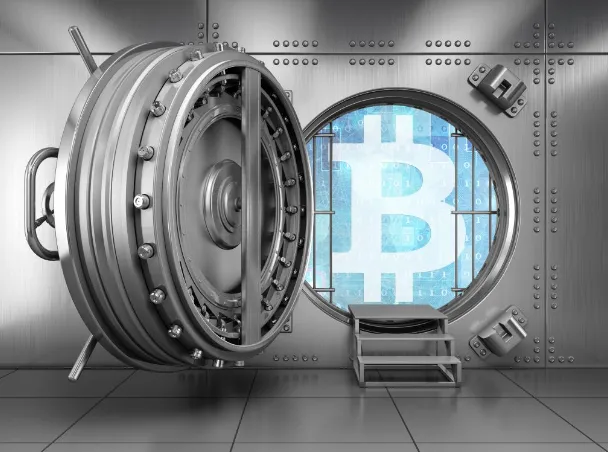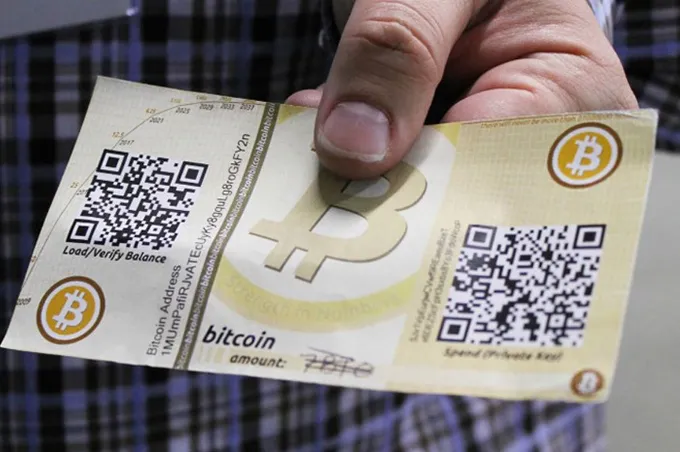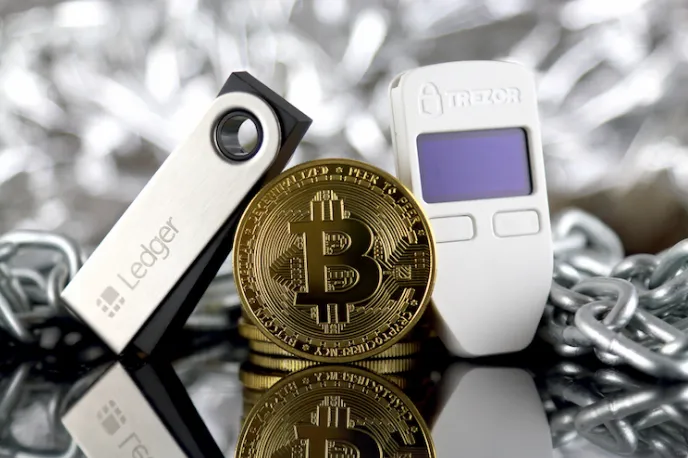Bitcoin introduced a paradigm shift in the way we think about money. One of the original concepts behind cryptocurrency is that we can control our own money, instead of relying on a bank to store it safely for us. While this new method of managing money gives us more autonomy, it also presents some risks.
Having money under our control means we could potentially lose it, or have it stolen from us. Therefore, it's important to think carefully about how to store it securely. In this article we are going to discuss a few ways to keep it safe, along with the pros and cons of each.

General Crypto Wallets
General crypto wallets such as Coinomi, Coinbase Wallet and Trust Wallet allow you to store a variety of cryptocurrencies on your computer or smartphone using a single seed phrase. These are self-custody wallets, meaning that you are the only one who knows the secret passphrase that controls the crypto, and are responsible for keeping it safe.
The benefit of a general crypto wallet is that you can store a variety of tokens, and have them quickly at your fingertips. The downside is that some specific features for certain cryptos may be unavailable (such as staking, voting, etc), and your money is more vulnerable as it's connected to the Internet, in what's otherwise known as a hot wallet.
There are also crypto wallets that specialize in certain blockchain ecosystems. For example Talisman and Subwallet are more specialized to serve the Polkadot ecosystem, whereas Keplr and Leap were engineered specifically for the Cosmos ecosystem.
Specialized Crypto Wallets
Specialized crypto wallets are similar to the general wallets described above, but have been designed specifically for a single blockchain. The benefit of a specialized wallet is that all of the blockchain's functionality will be available to you. The con is that you will have yet another wallet to manage and update regularly.
Paper Wallets

As opposed to the hot wallets described earlier, paper wallets are
physical, stored offline, and fall under the umbrella of cold wallets. They contain both the public and private key printed in QR code format, and should be kept somewhere safe until you're ready to use them.
Paper wallets are not connected to the Internet, so barring any issues with improper seed generation, they are impossible to hack. You can try creating a Bitcoin paper wallet yourself at bitaddress dot org.
The problem with a paper wallet is that you cannot interact with the blockchain (such as stake or vote) until you "sweep it" to a hot wallet. Therefore, paper wallets are better suited for cryptocurrencies you plan to hold for a long time, like Bitcoin.
Hardware Wallets
A hardware wallet is a physical device designed to store your crypto offline in a secure fashion, and also falls under the umbrella of cold wallets.
Hardware wallets support a limited number of cryptocurrencies, but the manufacturer integrates more all the time, based on customer demand.
While considered more secure than a hot wallet, keep in mind that hardware wallets are not 100% immune to attack. You still need to write down and store securely the seed phrase generated by the device, and firmware updates can potentially be malicious.

Exchanges
One of the easiest ways to store your crypto is directly on the exchange from which you purchased it. What could essentially be considered today's crypto banks, companies like Coinbase and Binance often custody their customer's crypto, meaning they secure the private keys to your funds.
The benefit of storing your crypto on an exchange is that you don't have to worry about storing the seed phrase yourself, as the exchange manages all of that security for you.
The disadvantage to this method is that the exchange could be hacked, the owners could run away with your crypto, or your account could be suspended for a number of arbitrary reasons.
Conclusion
There are several ways to store your crypto, and each one has its pros and cons.
There are both general and specialized crypto wallets which allow you store a variety of tokens. These hot wallets are considered less secure as they're often connected to the Internet and are therefore more vulnerable to attack.
You can also put your crypto into cold storage via paper wallets or hardware wallets, which are generally considered to be more secure since they remain offline. Cryptocurrencies that are meant to be held and not interacted with are better off in cold storage.
Finally, a lot of people prefer to keep their crypto stored on exchanges, where professionals manage the security. Although convenient, this does come with potential risks such as hacks, theft, and confiscation.
Follow Me
If you learned something from this post, be sure to check out my other posts about finance and crypto here on the HIVE blockchain. Also, for more frequent updates, follow me on InLeo.
Until next time...
Resources
Bitcoin in vault image [1]
Bitcoin paper wallet [2]
Ledger and Trezor hardware wallets [3]